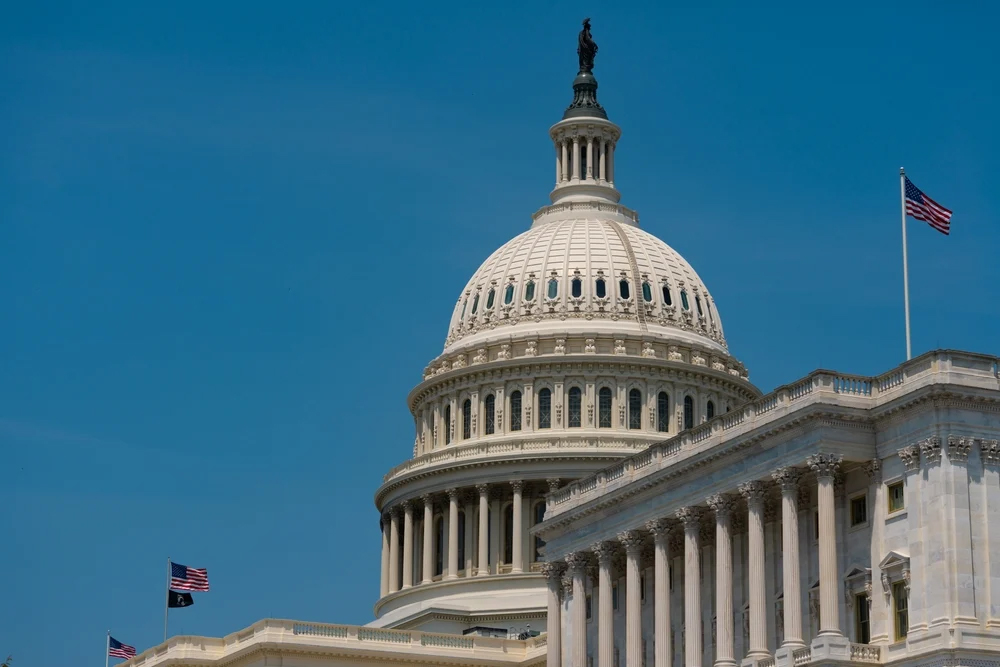How a Government Shutdown Affects Immigration

Government Shutdown Affects Immigration Services: What to Know
Every time the U.S. government shuts down, families ask how a government shutdown affects immigration and what it means for their cases. Questions arise: Will my USCIS application be processed? Will my immigration court hearing be delayed? Will visas still be issued?
Understanding how a government shutdown affects immigration is critical to protecting your future and your family’s plans. At Rozas, our immigration attorneys stay on top of these developments to guide you through every step.
The 2025 Government Shutdown: When and Why It Happened
The most recent government shutdown began at 12:01 a.m. on October 1, 2025, after Congress failed to agree on a budget for the new fiscal year. Lawmakers had until September 30 to pass a plan to keep the government funded, but they could not reach a deal. Instead of approving even temporary funding to keep things running, negotiations broke down.
The shutdown happened because of political disagreements over how much money the government should spend, whether to continue certain health care programs, and whether to cut foreign aid.
Shutdowns affect far more than immigration. They can close national parks, delay paychecks for federal employees, limit public services, and create ripple effects across the U.S. economy. For immigrant families, these broader disruptions add even more stress to an already complex process.
How a Government Shutdown Affects Immigration Cases
Not all agencies are impacted in the same way during a shutdown. Immigration is managed by multiple offices. Some continue operating, while others slow down or suspend services. This means your immigration process may or may not be directly affected depending on which agency handles your case.
How a Government Shutdown Affects Immigration at USCIS
U.S. Citizenship and Immigration Services (USCIS) is primarily fee-funded. This means most of its services, including applications for green cards, naturalization, DACA renewals, TPS, and family-based petitions, continue during a shutdown. However, a government shutdown affects immigration at USCIS by suspending E-Verify and slowing customer service.
However, applicants should still expect:
-
Processing delays due to reduced staffing and increased demand.
-
Suspension of E-Verify during the shutdown, meaning employers cannot create new cases while the system is down.
-
Slow responses to inquiries and customer service requests.
If you have a pending application with USCIS, continue to monitor your case through your online portal and respond promptly to any notices.
EOIR Immigration Courts: Hearings Moving Forward
The Executive Office for Immigration Review (EOIR), which oversees immigration courts, depends on congressional funding. In past shutdowns, non-detained cases were postponed. For the current shutdown, however, both detained and non-detained dockets are continuing as scheduled.
That said, the situation can change quickly if the shutdown continues or agency funding shifts. If you have a court date, assume it is moving forward unless your attorney tells you otherwise.
How the Government Shutdown Affects ICE Enforcement
Immigration and Customs Enforcement (ICE) continues to function during shutdowns, particularly enforcement and detention operations. While some administrative functions may be slowed, the core enforcement mission is not paused.
This means:
-
Arrests and detentions do not stop during a shutdown.
-
Bond motions and custody reviews continue, depending on court schedules.
For those at risk of detention, this is a reminder that shutdowns do not reduce ICE’s enforcement power.
U.S. State Department and Visa Processing
The U.S. State Department, responsible for visa issuance and consular services abroad, continues operations while fee funds are available. However, prolonged shutdowns can lead to:
-
Reduced staffing at embassies and consulates
-
Delays in visa interviews and processing times
-
Limited passport services in some locations
For families waiting on visas for loved ones abroad, these delays can disrupt reunification and travel plans.
Government Shutdown Impact on Asylum Seekers
Asylum seekers, especially those in immigration court, should expect hearings to move forward during this shutdown. Affirmative asylum applications filed with USCIS will also continue being processed, though some delays are possible due to reduced staffing and backlogs.
A government shutdown affects immigration courts for asylum seekers by adding uncertainty, even though hearings are continuing in this shutdown. Staying in contact with your attorney is critical.
How to Protect Your Immigration Case During a Government Shutdown
If you or a loved one has a pending immigration case, here are some key steps to take:
-
Stay in contact with your attorney. They will receive updates if your court hearing or filing deadlines change.
-
Check your USCIS portal regularly. Make sure to respond quickly to Requests for Evidence (RFEs).
-
Keep copies of all filings and receipts. Delays can cause confusion, so maintaining your records is essential.
-
Prepare for possible scheduling changes. Even if hearings are moving forward now, adjustments may happen if funding lapses continue.
-
Seek legal help immediately if you face enforcement or detention.
Immigration is already a complicated process, and a government shutdown adds another layer of uncertainty. Having an immigration attorney by your side ensures that you do not miss critical updates, deadlines, or opportunities to protect your case.
At Rozas, we have helped thousands of families navigate immigration challenges, whether through USCIS applications, deportation defense, or asylum representation. Our team understands how shutdowns disrupt lives, and we are here to provide clarity and support.
Stay Ahead with Rozas Updates
A government shutdown does not mean immigration stops, but it does create delays, confusion, and stress. USCIS continues to operate, immigration courts are still moving forward for now, and consular processing may slow down. Knowing how each agency is affected helps you prepare and respond effectively.
If you or a loved one has an immigration case, call Rozas today to schedule a consultation. Do not let uncertainty put your future on hold. Our team is here to fight for you.
Immigration laws and policies can change quickly, especially during times like a government shutdown. Stay ahead by connecting with us:
-
Follow us on social media for daily updates and resources: Facebook, Instagram, TikTok, and YouTube.
-
Subscribe to our weekly immigration newsletter for trusted updates delivered straight to your inbox.
At Rozas, we believe your journey should come with answers, not uncertainty. We will continue sharing clear, reliable guidance so you and your family can move forward with confidence.
Written by David Joseph Rozas
David Rozas is an experienced criminal and immigration lawyer and one of the founding partners of Rozas & Rozas Law Firm. He has been with the firm since 2004, joining his brother, Greg in practice. David concentrates his law practice on criminal defense and immigration.

.svg)















